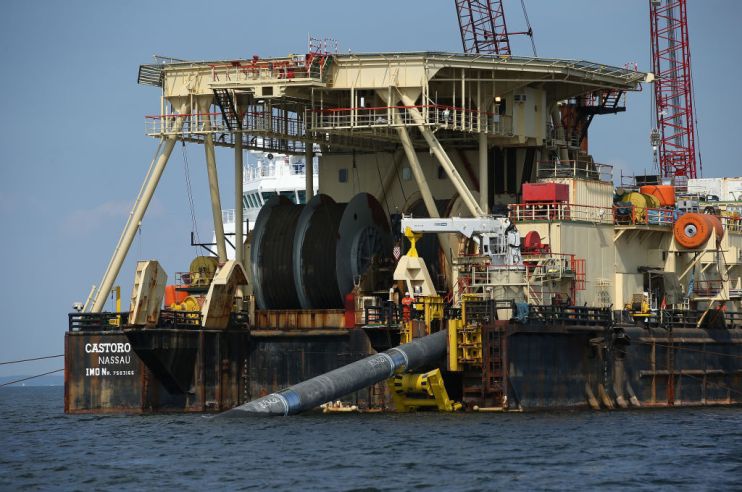More goods could be included in rouble-for-gas scheme warns Kremlin

More goods could be included in Russia’s rouble payment scheme for natural gas, according to Kremlin spokesperson Dmitry Peskov, describing last week’s announcement as a “prototype”.
Speaking to Russia’s Channel One state television, Peskov said: “It is the prototype of the system. I have no doubt that it will be extended to new groups of goods.”
He gave no time frame for any future moves or which goods could be included.
Putin’s decision would cement Gazprom’s role at the heart of Russian gas trading, and would likely shield the oil and gas company from future sanctions.
However, the West remains highly reliant on Russian oil, coal and raw materials – with the European Union (EU) dependent on Russia for half its coal, 40 per cent of its natural gas
This follows Russian President Vladimir Putin signing into law requirements for overseas buyers to pay for natural gas in roubles last week.
The system allows purchasers to pay in contracted currencies – which are then exchanged into roubles by Gazprombank – allowing partners to purchase gas while boosting the value of the rouble.
West holds united front to Russian gas demands but remains reliant on Kremlin-backed fossil fuels
So far – the West has rejected demands for rouble payments, presenting a united front to Putin’s demands.
The measures have been dismissed by European Union (EU) leaders, the G7 and NATO in the past few days.
Most recently, Slovakian Prime Minister Eduard Heger has confirmed it will act in unison with its EU allies against Russia’s gas payment demands.
In a Facebook post, he said: “In this situation, unity is key and we insist on respecting contract conditions and payments in euros.”
So far, Gazprombank has been spared from the harsh sanctions imposed on other Russian banks so European gas buyers could open an account with it and let the lender buy roubles on their behalf.
It would have to remain unsanctioned for trade to continue.
The rouble demand is also seen as retaliation to heavy Western sanctions targeting the central bank, financial institutions and oligarchs.
While, the UK, US and Lithuania have imposed energy sanctions on the country, the European Union (EU) remains split on the prospect of oil and gas import bans – with the bloc dependent on the continent for around 40 per cent of its natural gas supplies and 30 per cent of its crude oil.
Countries such as Austria and Germany which rely on Russian gas for 85 per cent and 55 per cent of their consumption needs respectively, have recently unveiled emergency measures to prevent supply shortages.
By contrast, Lithuania has announced it will no longer import Russian natural gas – becoming the first EU nation to bring in energy sanctions.
The UK is set to announce plans to boost further North Sea oil and gas exploration, as part of its long-awaited energy strategy which is likely to be finally unveiled later this week.
Meanwhile, Russia has maintained gas flows through key pipeline routes into Europe, despite uncertainty over payment terms.
European leaders are also calling for more sanctions against Moscow after reports of war crimes in Ukraine.